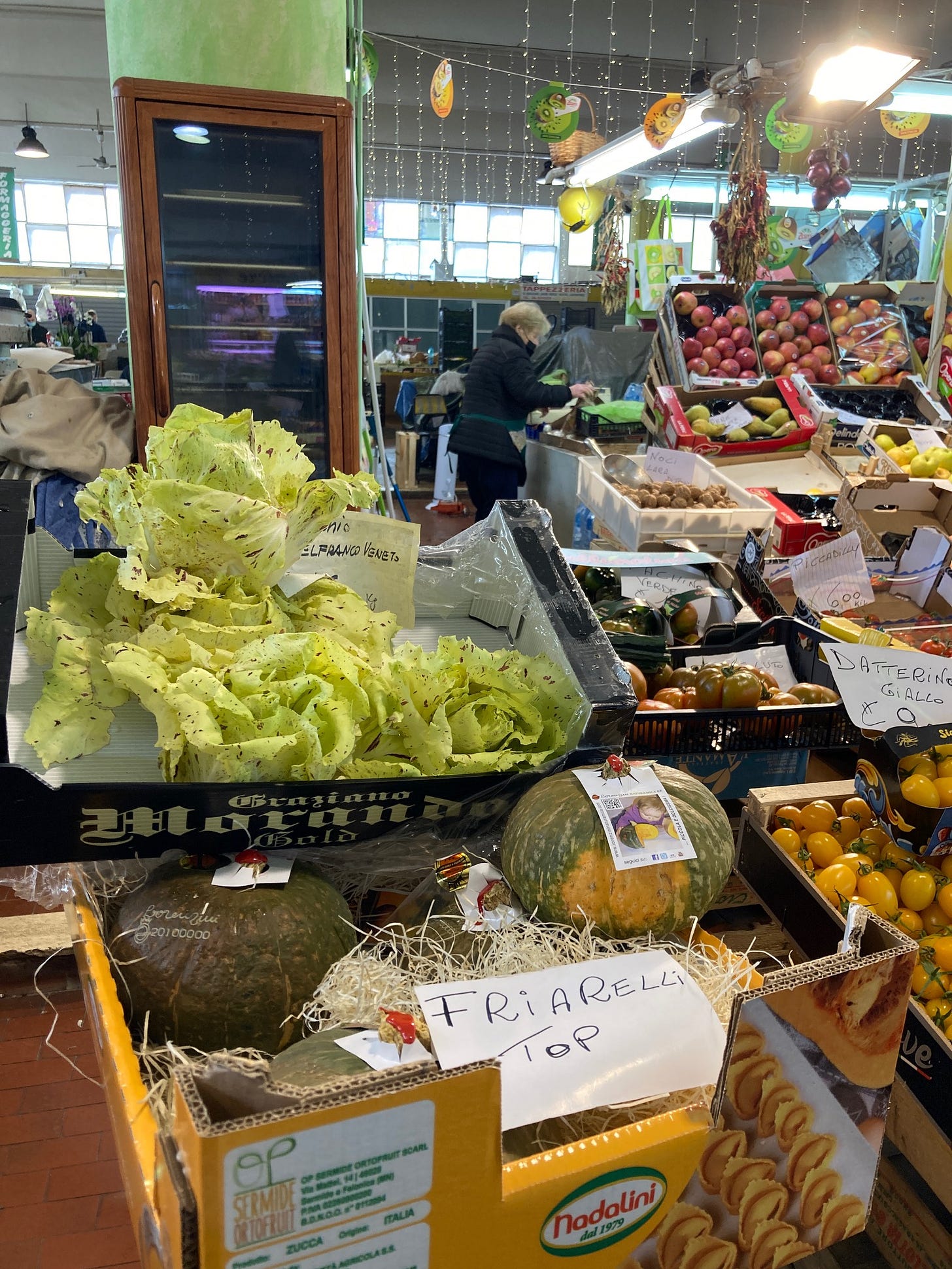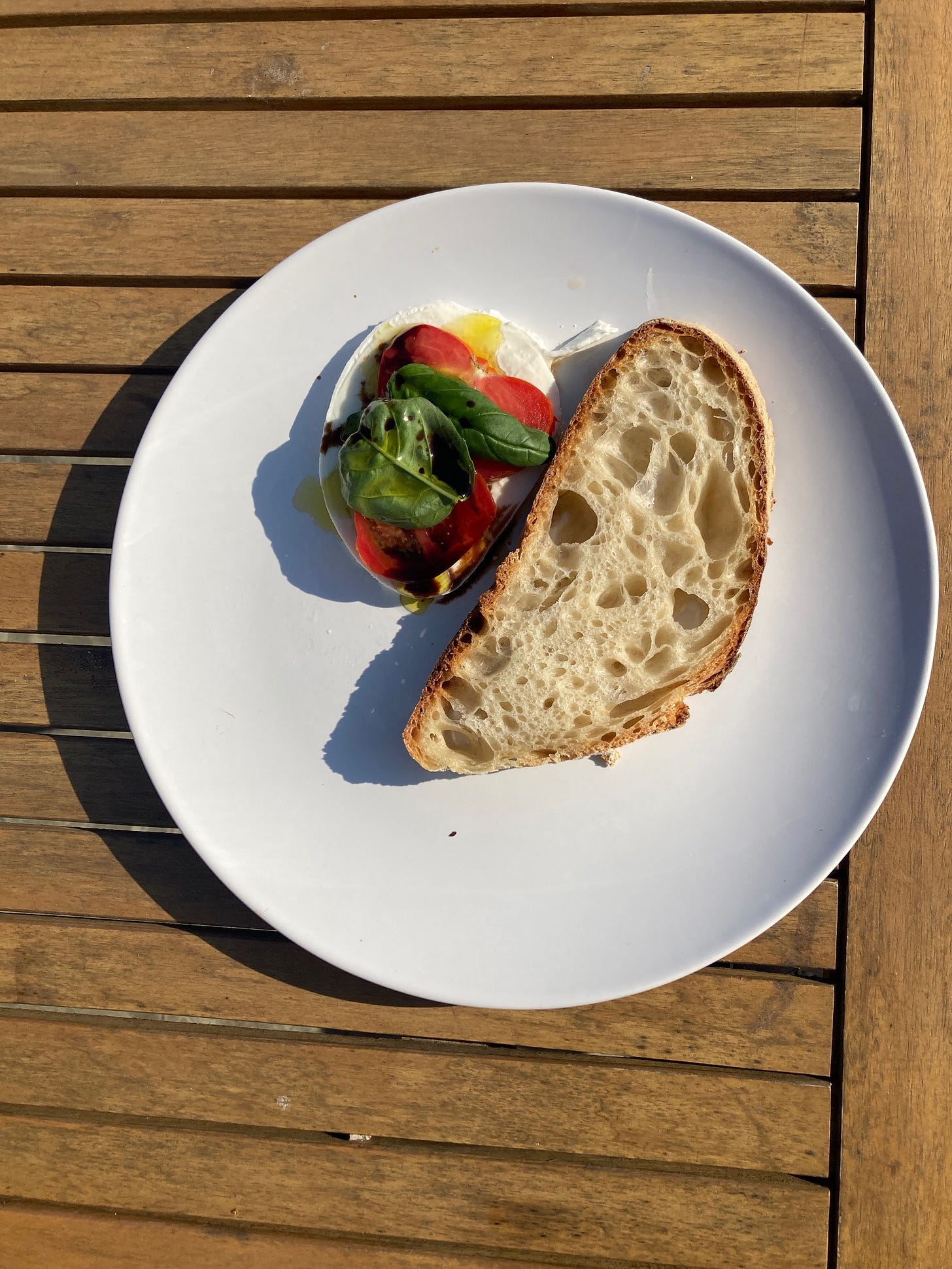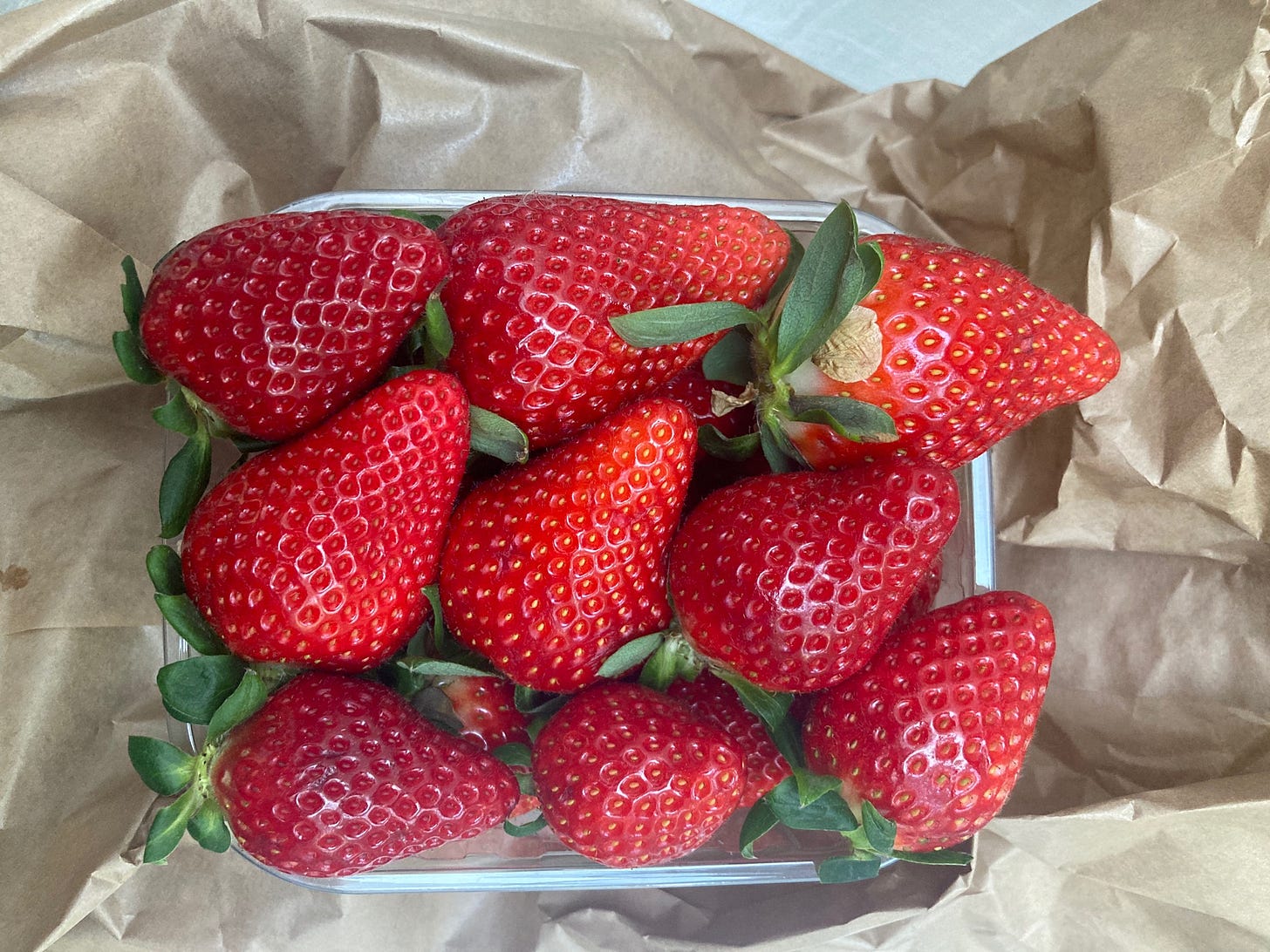Some self-promotion: I’ve written a piece for Vittles, about food factories in British film and TV. It’s called Mechanical Reproduction in the Age of Gregg Wallace, and it features Karl Marx, Willy Wonka, and WW1 propaganda, as well as a few deep cuts.
We had just left a narrow alimentari, and our bags were full of focaccia, sliced meats and cheese to accompany our pre-dinner drinks. This was years ago; it was September, and we were on holiday in a Sicilian hamlet. “I love these little neighbourhood grocers,” I told my partner at the time, on our walk back. “Do you?" she asked. “You still seem desperate to leave as soon as possible, to complete your mission without any fuss.”
She was right. I had taken the same attitude I had always brought to the Tesco we lived above, a small London supermarket where nobody knew our faces or names, even though we went there most days. Overcome the paralysis of choice; fill your basket; get out. This way of shopping is perfectly designed for the anonymity of the supermarket; nobody will ask you how you are planning to cook your potatoes, or if you are sure you have enough fennel. It is a mentality singularly ill-suited to the alimentari, but it takes more than a few weeks to kill the habit of a lifetime.
There is a great deal about these little shops that can appear inconvenient. The fish are in a different shop to the cured meats, which are in a different shop to the fresh vegetables. In each one, almost everyone will stop for a brief chat. If you want to keep tabs on how much your groceries will cost, you need to get good at asking questions, and in many cases, to brush up on your mental arithmetic. Even after all that, there are probably still one or two things you will need to find at the supermarket, which always feels a shame.
Roberto, my favourite greengrocer in the Mercato Pinciano, is a ten-minute walk from my accommodation in Rome; Carrefour is eight. In theory, he closes at 2pm every day; in practice, he starts winding down an hour or two earlier. He gets a delivery of fresh mozzarella from Campania on a Friday, which is gone by mid-morning on a Saturday. The shutters of the covered market where he has his stall are locked down on a Sunday; there are supermarkets nearby that are open until midnight, seven days a week. Becoming a loyal customer of Roberto’s requires a bit of forward-planning. My time, both in Rome and on earth, is limited: so why bother?
In Italy it is not unusual to wish someone buona domenica, “have a good Sunday,” on a Saturday. All of the shopkeepers in the Mercato Pinciano do. To begin with this felt strange to me, until I remembered that many people in the UK wish each other Merry Christmas quite early in December. When I worked in an office, I started wishing my colleagues a nice weekend at around 3pm on a Friday. In each case, one of the things we are communicating is “work is nearly over.” Although buon weekend exists in Italy too, Sundays are singled out here in a way that does not have an equivalent in my London life.
Buona domenica is commonly explained as a ‘religious thing,’ but I think that is an oversimplification. It has as much to do with the idea of Sunday as communal time off, as it does with the sacrality of the day itself. A good friend of mine jokes that aside from her mother, an observant Catholic, I am the only other person she knows who would like to return to stricter Sunday trading restrictions. I am not religiously attached to Sundays in particular, but rather, to the idea that as many people as possible should share the same time off. It is that, in addition to the day’s religious significance, which gives Sundays a special aura; the idea that they are a vacation from the workplace, as well as a holiday, or holy-day.
An increasing number of Italians in retail work on Sundays too, but the smaller the shop, the greater the likelihood that it will still be closed on a Sunday. Italians work more hours a week than many in Nordic nations, but for some, there is a small comfort in the knowledge that one day a week will be ring-fenced, and that it will be the same day every week.
We are often encouraged to think about convenience from a consumer’s perspective; after all, we all consume, and must do so to live. But consumers are not the only players in this game. What about the convenience of the workers in the 24/7 supermarket, or in the factory that runs all night long? Although they work shifts, and in theory could work fewer hours in total than the small greengrocer, their Sundays are not protected; there is no guarantee that they will share the same day off as their family and friends. What effect do supermarket shareholders have on the social fabric when they ask their employees to work while many smaller shops are taking a well-earned break?
Small shops are not inherently better than supermarkets; I have bought disappointing vegetables from plenty of Italian market stalls, and have had wonderful tomatoes from big out-of-town Co-ops. I’ve had bargains in local cheesemongers, but I’ve been fleeced and short-changed too, particularly when I was in the earlier stages of learning Italian. It’s a big world out there, and I would do everyone a disservice — including shopkeepers like Roberto, who put in a special effort to get everything right — if I pretended that all market stalls were equally delightful.
But when I find a market stall that is a delight, it is a very special thing, and it surprises me in ways that a supermarket never has. In order to derive joy from this way of shopping, however, I first had to unlearn my supermarket habits, or at least to suspend them temporarily. First of all, I had to unlearn the rush of the adoptive Londoner.
A good stallholder can manage a queue adeptly. I liked Roberto immediately, before it came to our turn. My friend Emma and I had come with a vague shopping list — adaptability being another advantage in the market game, and not an easy one to acquire — and decided we would stop at the most colourful, abundant stall. Roberto was serving a customer, who was in the opposite of a hurry, but he clocked us immediately: arrivo subito, I’ll be right with you, don’t worry. And when it comes to your turn, my attention will be undivided, just as it is with the signora before you.
The next thing I had to unlearn is the awkwardness of the out-of-towner who, unlike apparently every other customer, does not have a clue. Every place’s food culture has its own distinct rhythm; necessarily, my own palate marches to a different beat. Against an old-timer’s instinctive knowledge, developed over a lifetime, my instinct is to feel ashamed of my ignorance.
If I were to try to blend in, to follow local customers’ cues, I would point at a few things with feigned confidence. I would likely end up with a bizarre bag of ingredients that do not work together in harmony. It has happened to me before, and it was enough to make me walk back to the supermarket with my tail between my legs.
I would not fool anyone, even if I tried to blend in: my accent will never be spot-on, and something about my gait, clothes or shopping habits will expose me as an out-of-towner. But I have come to realise that that is fine; it is more than fine. To embrace the alternative — to be a curious foreigner, but ultimately, to admit cluelessness — is not easy, but it is necessary.
“I sometimes wonder why, for the English middle-class, to be seen as foreign is such a shameful thing in the first place.” Huw Lemmey wrote this in one of my favourite pieces for Vittles. This shame is compounded, I think, by a not-always-helpful distinction that is often drawn between travellers and tourists. Travelling is idealised: being knowledgeable, blending in, ‘acting like a local,’ as Joanna Fuertes puts it in another excellent Vittles essay. Tourists are often regarded with a certain snobbery by those who see themselves as travellers, who insist on the distinction in order to assert: “we are not like you.”
But to the extent that this division makes any sense at all, travellers can learn something from tourists, who in many cases understand that they do not, and cannot, eat/drink/shop ‘like a local.’ I will be in Rome for a while, but my residency here is temporary, and I will barely scratch the surface.
I can learn about what is coming into season, and what is going out; by trial and error, and with a great deal of patience from people like Roberto, I can work out what combinations si sposano bene, “marry well,” — which ingredients suit one another. Specifically, I can start to learn what works for the Roman palate, which is not my own, and which will sometimes conflict with mine (which is fine). Or more specifically still, I can learn what works for one of the many versions of the Roman palate. This palate is perhaps even less like my own, though it is a fine palate indeed, and produces some exceptionally delicious spreads of food.
My own taste, although changed by its encounters with Rome, remains the cumulative product of my life’s experiences, just as Roman palates are the result of the city’s changing landscape, and of its residents’ own personal histories. Acknowledging this means that sometimes, against the unattainable ideal of authenticity, I can let myself follow my own desires. I can leave some space (and set a few euros aside) to freestyle.
I had made up my mind that I would wait for the little strawberries from the surrounding region to come into season, before indulging in one of my favourite fruits. But on Saturday, when I was picking out tomatoes, the smell of strawberries knocked me for six, even through the mask I was wearing. They are from Basilicata, Roberto said; a few of the Roman ones are ripe already, but for now, the ones from further south are tastier.
I bought them and ate a few on the way home, and had no regrets whatsoever that I did not hold out for the Roman strawberries to arrive. To me, they tasted not of Basilicata, nor of Rome, but of the Welsh borders in July; of my birthday; of a Pick-Your-Own farm in Herefordshire, with a fridge full of clotted cream by the till.






